Blog
Words. Wisdom. Winners.
Curiosity
Curiosity is good, if you ask the right questions.
If you ask the wrong questions, it is designed to trigger you.
Why are they not nice to me?
Why am I so dumb?
Why do I need to work so hard to be liked by others?
Those are the incorrect questions.
What if you ask:
How can I be nice to myself?
How can I be comfortable in my own skin?
How can I be working hard on feeling at peace?
Curiosity is cool, only when it doesn’t turn you into a self-diagnosed fool.
Curiosity
Curiosity is good, if you ask the right questions.
If you ask the wrong questions, it is designed to trigger you.
Why are they not nice to me?
Why am I so dumb?
Why do I need to work so hard to be liked by others?
Those are the incorrect questions.
What if you ask:
How can I be nice to myself?
How can I be comfortable in my own skin?
How can I be working hard on feeling at peace?
Curiosity is cool, only when it doesn’t turn you into a self-diagnosed fool.
I was lost…
I had planned my life for the last 10 years, and I was still lost at 24.
The love of my life (Astrophysics) wasn’t the happiness of my life. That was sad. And even relieving.
Today, almost two decades later, I can say with utmost certainty, that wherever you are in life, you will find out a way. If I can find one, anyone can.
There is always a way. Don’t lose hope, my friend!
No one
When I returned from the US after dropping out of my PhD, almost everyone called it an incorrect decision.
I was supposed to solve our financial problems.
I was supposed to land on Mars because that’s what I had been dreaming of, for years.
I was supposed to be happy doing all of that.
But I wasn’t!
We all keep running after what is supposed to make us happy, but has failed to keep up to that. And when we do realise that we need to change course to be happier, it’s a bigger choice.
Either to stay where we are because it is going to be difficult, or to embrace difficulty and set on an exploration of happiness.
No one option guarantees happiness, but the second option makes sure that at least we set on an exploration. And if do that, we may even find happiness along the way!
No one
When I returned from the US after dropping out of my PhD, almost everyone called it an incorrect decision.
I was supposed to solve our financial problems.
I was supposed to land on Mars because that’s what I had been dreaming of, for years.
I was supposed to be happy doing all of that.
But I wasn’t!
We all keep running after what is supposed to make us happy, but has failed to keep up to that. And when we do realise that we need to change course to be happier, it’s a bigger choice.
Either to stay where we are because it is going to be difficult, or to embrace difficulty and set on an exploration of happiness.
No one option guarantees happiness, but the second option makes sure that at least we set on an exploration. And if do that, we may even find happiness along the way!
My skin care routine :)
Some folks on Twitter and Instagram asked me that. Here is the secret from the vault, about my less-known skin care routine:
1. Sleeping and waking up at the same time everyday. 7 hours of sleep, daily.
2. Working out for 1.5 hours every single day.
3. Dinner at 6:30 pm. Next meal is the breakfast next day, almost 14 hours later.
Sometimes, the obvious is the unexplained :)
My skin care routine :)
Some folks on Twitter and Instagram asked me that. Here is the secret from the vault, about my less-known skin care routine:
1. Sleeping and waking up at the same time everyday. 7 hours of sleep, daily.
2. Working out for 1.5 hours every single day.
3. Dinner at 6:30 pm. Next meal is the breakfast next day, almost 14 hours later.
Sometimes, the obvious is the unexplained :)
The less-known method of building trust
To be there for people when it is easy to be away.
To be the trusted employee when everyone walks out.
To be the friend who would be with you in tough times.
To be the manager who trusts you despite your flaws.
Trust is hard. Not because it is scarce. Rather because it is something we were raised in absence of.
To build trust is building people.
While we continue to rebuild the toxic childhood patterns of our own selves…
If regret had a synonym…
If regret had a synonym, it would be called hell.
A place where all your freedom doesn’t exist, because you were too busy in chains of the past and impossibility.
A place where you put so much effort in being who you are not, that you almost forgot that being you is much effortless!
A place where you were not you.
Life is short. Yet we waste it for the longest time.
It is up to us to realise this when others tell us, or to realise this at the peril of our own life…
How I deal with anger
I don’t!
It’s as easy.
I rather disengage from the conversation, because when in anger, you are only going to say words that don’t hold meaning. At the same time, they are going to pierce the recipient.
And when you have calmed down, you can objectively solve for the problem.
To deal with anger, the only thing we need is calmness to look at it objectively.
Subscribe to warikoo wanderings
